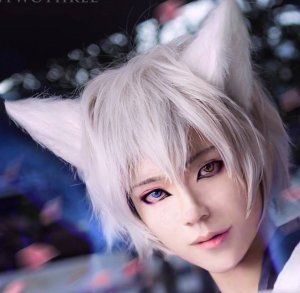The Surest Thing is Being Unsure
In contemplating this drama, one is struck by its intrinsic uncertainty; every attempt to foretell an outcome based on personal theories is swiftly invalidated. Amid fervent discussions within the MDL community, the narrative unravels like a colossal jigsaw puzzle, with assumptions and theories constantly evolving, only to be refuted in due course. The plot remains shrouded in secrecy, devoid of any prior references, leaving viewers to speculate and generate their own theories.
Performances are commendable, with fight choreography leaving a lasting impression. Tian Jiarui's portrayal of Gong Yuanzhi stands out, his wicked smile sending shivers down one's spine. Zhang Linghe's Gong Ziyu exudes an endearing, love-struck quality akin to a teenager in the throes of first love. Lu Yuxiao's Shangguan Qian strikes a delicate balance between reality and deception, leaving the audience perpetually guessing. Cheng Lei's Gong Shangjue subtly conveys secret satisfaction with a telltale quirk at the corner of his lips. Even Omid's portrayal of the ostensible antagonist, Hanya Si, brims with emotional depth and inner turmoil. The costumes are meticulously crafted, and the makeup work is remarkably convincing. The drama also boasts a collection of poignant ballads, expertly timed to heighten the emotional resonance of each scene.
Although the undertones are somber and shadowed, the narrative interjects moments of levity through humor, wordplay, and irony. An instance arises when Yun Weishan addresses Gong Ziyu as "Yu Gongzi," prompting him to retort, "Call me Gong Ziyu," a clever homophonic quip laden with layered meaning. Above all, the story revolves around the romances of various couples. While the first couple commands ample screen time, the second couple receives comparable attention, their relationship characterized by well-defined characters and an air of suspense and suspicion. Just as the audience anticipates a continuation of playfulness, the mood shifts abruptly, veering into darker, more grave territory as the characters confront their would-be assassins, their lives imperiled by unseen poisons.
"My Journey to You" also serves as a cautionary tale on how not to construct a drama. The beginning is amazingly good. It commences with a dark air of mystery, introducing enigmatic characters each with their own strengths, flaws, and hidden agendas. Discussions abound, speculating on the intricacies of the plot and the ultimate antagonist, as every character harbors ulterior motives. By Episode 22, the grand reveal occurs, divulging the whole plot and the mastermind's identity. However, this revelation falls flat as the element of surprise of who the mastermind is has disappeared; the audience has already figured this out in the prior episodes. On top, the supposedly multi-layered scheme by the protagonists becomes not so perplex anymore as the characters settle into their defined roles of virtue or vice, the earlier allure and intrigue fade.
At the end of the story, Gong Ziyu, though growing stronger and less naïve, retains moments of folly. Perhaps most notably, the once wicked Gong Yuanzhi transforms into an endearing figure, affectionately addressing most of his older comrades as "ge ge." The drama concludes with numerous unresolved mysteries, chief among them being the true leader of Wu Feng and the fate of Yun Weishang. These loose ends leave the narrative feeling somewhat deflated, ending with a sense of anticlimax. While a potential sequel is hinted at, it remains unconfirmed.
My Verdict
Despite the drama’s less-than-stellar development, it is redeemed by a cast of strikingly handsome men, from Zhang Linghe to Zuo Ye. Even the juvenile Lester Lin is amazingly good looking. Each one possesses a distinct charm. It is regrettable that Zeng Shunxi makes only a belated appearance with limited screen time.
Though a missed opportunity for a more compelling conclusion, this drama comes highly recommended for its rich entertainment value and the presence of exceptionally charismatic actors.
Bravo! Strongly recommended! Don't miss it!
Performances are commendable, with fight choreography leaving a lasting impression. Tian Jiarui's portrayal of Gong Yuanzhi stands out, his wicked smile sending shivers down one's spine. Zhang Linghe's Gong Ziyu exudes an endearing, love-struck quality akin to a teenager in the throes of first love. Lu Yuxiao's Shangguan Qian strikes a delicate balance between reality and deception, leaving the audience perpetually guessing. Cheng Lei's Gong Shangjue subtly conveys secret satisfaction with a telltale quirk at the corner of his lips. Even Omid's portrayal of the ostensible antagonist, Hanya Si, brims with emotional depth and inner turmoil. The costumes are meticulously crafted, and the makeup work is remarkably convincing. The drama also boasts a collection of poignant ballads, expertly timed to heighten the emotional resonance of each scene.
Although the undertones are somber and shadowed, the narrative interjects moments of levity through humor, wordplay, and irony. An instance arises when Yun Weishan addresses Gong Ziyu as "Yu Gongzi," prompting him to retort, "Call me Gong Ziyu," a clever homophonic quip laden with layered meaning. Above all, the story revolves around the romances of various couples. While the first couple commands ample screen time, the second couple receives comparable attention, their relationship characterized by well-defined characters and an air of suspense and suspicion. Just as the audience anticipates a continuation of playfulness, the mood shifts abruptly, veering into darker, more grave territory as the characters confront their would-be assassins, their lives imperiled by unseen poisons.
"My Journey to You" also serves as a cautionary tale on how not to construct a drama. The beginning is amazingly good. It commences with a dark air of mystery, introducing enigmatic characters each with their own strengths, flaws, and hidden agendas. Discussions abound, speculating on the intricacies of the plot and the ultimate antagonist, as every character harbors ulterior motives. By Episode 22, the grand reveal occurs, divulging the whole plot and the mastermind's identity. However, this revelation falls flat as the element of surprise of who the mastermind is has disappeared; the audience has already figured this out in the prior episodes. On top, the supposedly multi-layered scheme by the protagonists becomes not so perplex anymore as the characters settle into their defined roles of virtue or vice, the earlier allure and intrigue fade.
At the end of the story, Gong Ziyu, though growing stronger and less naïve, retains moments of folly. Perhaps most notably, the once wicked Gong Yuanzhi transforms into an endearing figure, affectionately addressing most of his older comrades as "ge ge." The drama concludes with numerous unresolved mysteries, chief among them being the true leader of Wu Feng and the fate of Yun Weishang. These loose ends leave the narrative feeling somewhat deflated, ending with a sense of anticlimax. While a potential sequel is hinted at, it remains unconfirmed.
My Verdict
Despite the drama’s less-than-stellar development, it is redeemed by a cast of strikingly handsome men, from Zhang Linghe to Zuo Ye. Even the juvenile Lester Lin is amazingly good looking. Each one possesses a distinct charm. It is regrettable that Zeng Shunxi makes only a belated appearance with limited screen time.
Though a missed opportunity for a more compelling conclusion, this drama comes highly recommended for its rich entertainment value and the presence of exceptionally charismatic actors.
Bravo! Strongly recommended! Don't miss it!
Was this review helpful to you?


 1
1 5
5 1
1



















